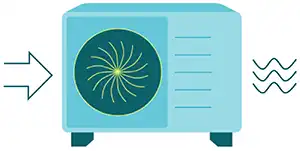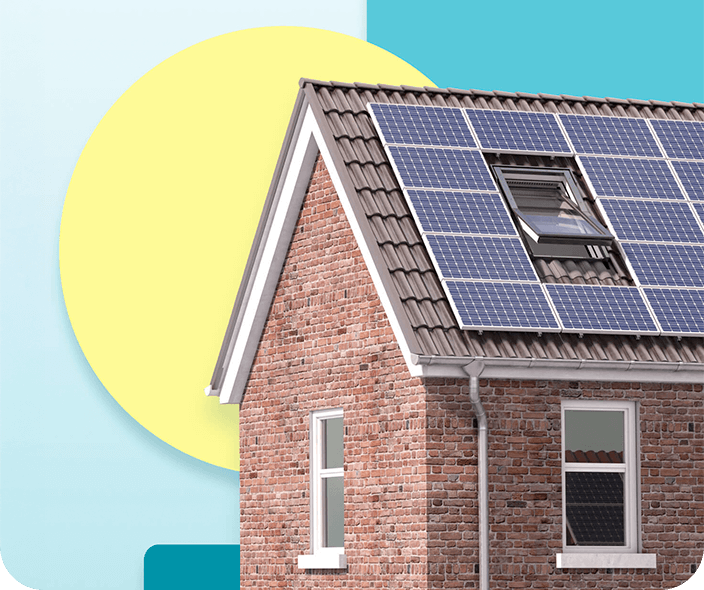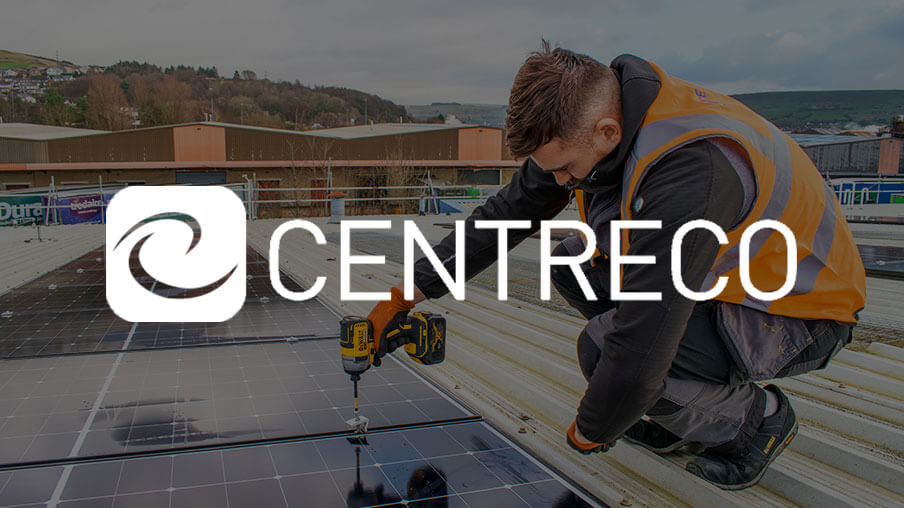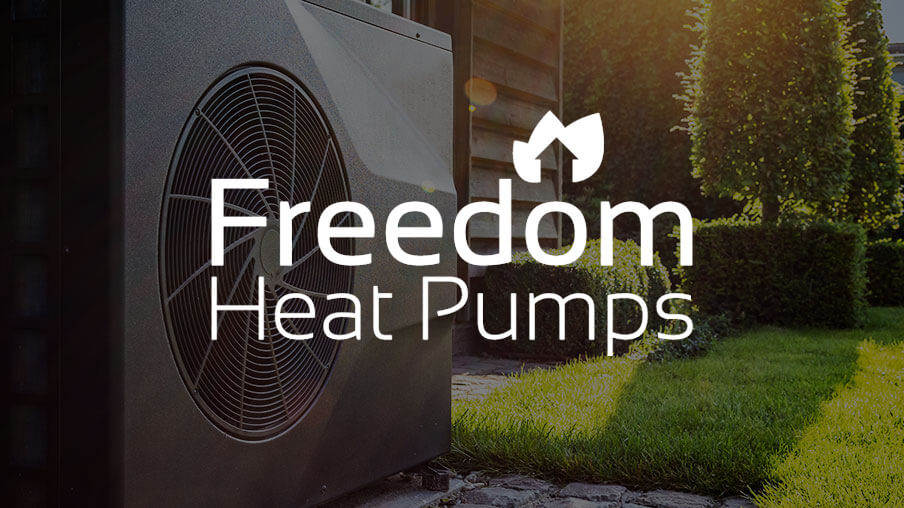Home » Case Study: A Full House Story – Renewable Energy
Case study: A full house story
Certas Energy helped homeowners Adam and Sallie Ann lower their energy bills and reduce their carbon footprint.
Low-carbon future for homeowners
Homeowners Adam and Sallie Ann Reid required an alternative energy solution to meet the energy needs of their large off-grid home. Our hybrid 18-panel solar PV system and a low-temperature air source heat pump solution helps the couple reduce their running costs.
Adam and Sallie Ann, who have lived in a large off-grid home (with large open plan rooms and big windows) for over eight years, needed to heat up a huge house and have a hot water supply.
They were also keen to explore options to lower their running costs and reduce their carbon footprint.
After surveying the property, our Evolo team implemented a bespoke hybrid solution. They installed a low temperature air source heat pump to generate the energy required and an oil boiler to serve the hot water.
We also delivered an 18-panel solar PV system that helps reduce energy costs and lower carbon emissions.
With our hybrid solution, the Reids are now assured of having constant heat and hot water for their home, as well as being safe in the knowledge that they are optimising their energy costs for the future.
They also benefit from our dedicated support and advice on their journey to a net zero home.
“We are excited to be on the journey to greener living and reducing our carbon footprint as well as easing our running costs - all in one go.”
Sallie Ann Reid
Homeowner
We help evolve the way you power your home – by providing high quality, renewable solutions, tailored for your household’s unique needs. Whether financed by you or supported by eligible government grants, our solutions help you achieve a lower-carbon, energy-efficient, and cost-effective home.
Why Certas Energy Renewables?
Our commitment to cleaner energy and innovative technology aims to halve your carbon emissions and provide sustainable, cost-effective options, leading the way to a greener future for all.
Reliability
Our accredited experts help reduce the complexity of the energy transition for homes and businesses.
Efficiency
Gain energy independence and reduce your energy bills while progressing towards a cleaner energy future.
Sustainability
Lower your carbon emissions for a sustainable future and join the vision to achieve net zero by 2050.
Powered by a family of Renewable Experts
With a strong foundation of industry-leading products and a wealth of expertise, we’re uniquely positioned to transition homes and businesses to sustainable solutions.
Specialists in delivering fully funded energy-saving solutions through local councils, focusing on renewables, insulation and heating systems.
A market leader in solar energy systems delivering turnkey commercial solar solutions to maximise business efficiency across the UK.
A one-stop shop that connects customers with the right renewable installed services for their home, or EV charger services for their business.
The UK’s largest dedicated distributor of heat pumps, with an expanding product range to meet market needs.
Customer Success Stories
Ready to learn more?
Frequently Asked Questions
Renewable energy is natural energy that comes from a source that won’t run out.
Renewable energy – which usually has a low- or zero-carbon footprint – is great for the environment and vital in the race to tackle climate change.
In the UK, there are 4 main sources of renewable energy: solar energy, wind power, bioenergy (organic matter burned as a fuel) and hydroelectric, including tidal energy.
The UK is on a mission to reach net zero by 2050, and so using electricity that comes from renewable sources is essential to help reduce our carbon emissions.
Renewable sources are in much more plentiful supply, compared to fossil fuels, and produce little or no harmful emissions when used, so the clean energy they provide will play a crucial role in preventing further global warming.
There are many benefits of renewable energy:
- Lower energy costs
- Reduced carbon emissions
- Energy independence from the National Grid
- Enhanced reliability and security
- Job creation and opportunities within Renewable sector
Solar is a renewable and infinite energy source that creates no harmful greenhouse gas emissions. It works by converting energy from the sun into power, and offers many benefits:
✓ Reduced electricity bills
✓ Lower carbon emissions
✓ No running costs
✓ Low maintenance
✓ 25 years+ life expectancy
✓ Energy independence from the Grid
Solar panels – which generate heat and electricity from the sun – are usually made from silicon, or another semiconductor material. When this material is exposed to photons of sunlight, it releases electrons and produces an electric charge.
This PV charge creates an electric current (direct current / DC), which is converted to alternating current (AC) by an inverter. AC is the
type of electrical current used when you plug appliances into normal wall sockets.
The carbon footprint of solar panels is already quite small, as they last for over 25 years. Plus, the materials used in the panels are increasingly recycled, so the carbon footprint will continue to shrink.
‘Carbon Neutral’ refers to the ambition to limit any increase in future carbon emissions, while using offsets to neutralise existing emissions. It’s also less prescriptive regarding the reporting boundary, with the inclusion of wider value chain (Scope 3) emissions being encouraged but not mandatory.
‘Net Zero’ refers to the amount of greenhouse gases – such as carbon dioxide, methane or sulphur dioxide – that are removed from the atmosphere being equal to those emitted by human activity. There is more focus on reducing carbon emissions as much as possible first, and only offsetting unavoidable, residual CO2 as a last resort.
Organisations are working hard to reduce their greenhouse gas emissions. In order to reduce emissions, we need to understand and measure where they’re coming from in the first place.
‘Scope 1, 2, and 3‘ are a way of categorising the different kinds of emissions a company creates in its own operations and in its wider operations.
Scope 1 emissions
Scope 1 emissions refer to direct emissions that are owned or controlled by an organisation (e.g., burning fuel in a company’s fleet of vehicles)
Scope 2 emissions
Scope 2 emissions are indirect emissions from the generation of purchased energy (e.g., emissions caused by the generation of electricity used in an office building)
Scope 3 emissions
Scope 3 emissions are not produced by the company itself and are not the result of activities from assets owned or controlled by them, but are all other indirect emissions from an organisations’ operations (e.g., when a company uses, buys and disposes of products from suppliers)











